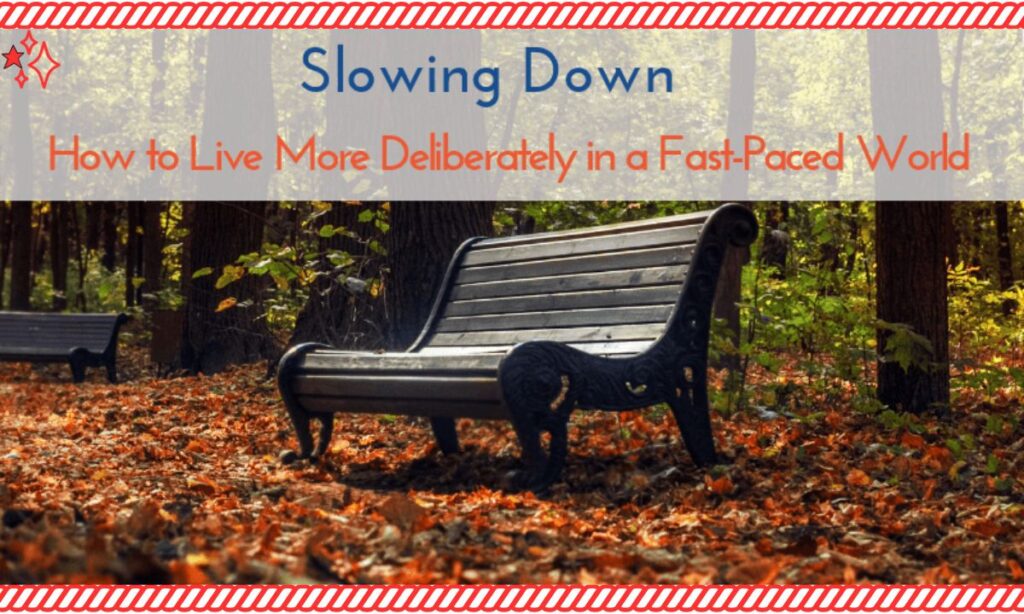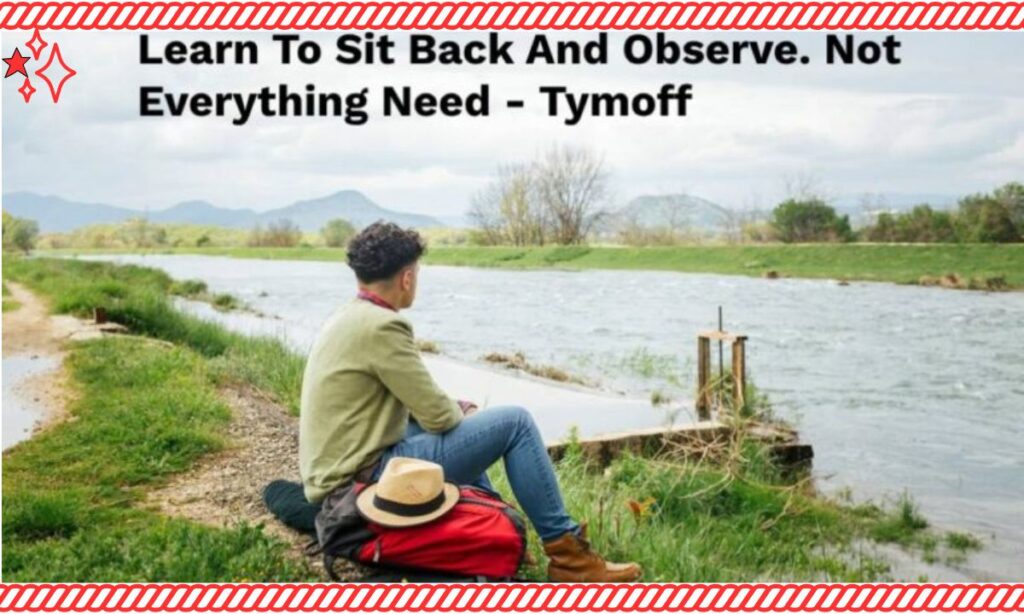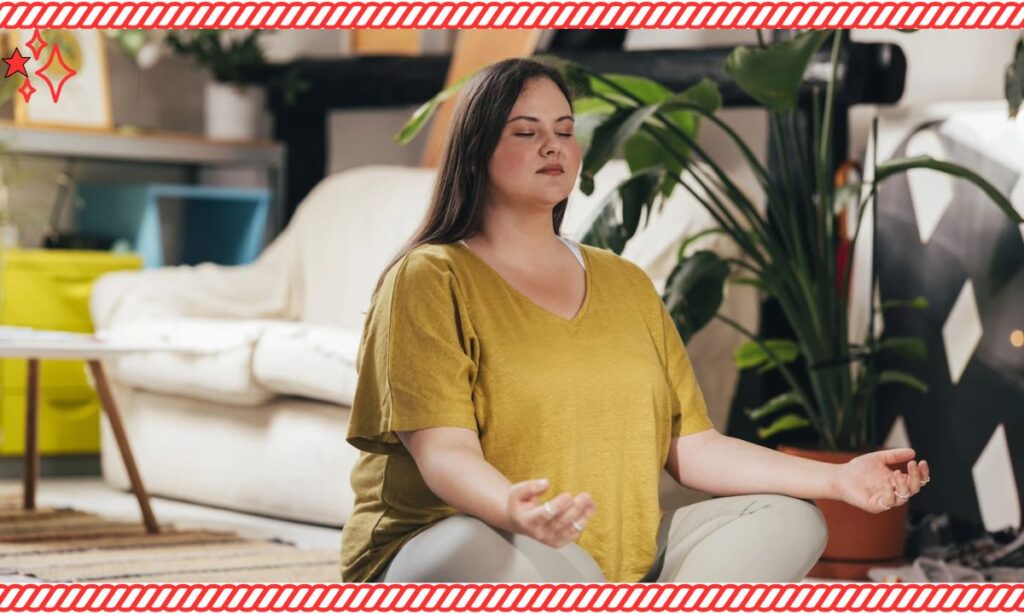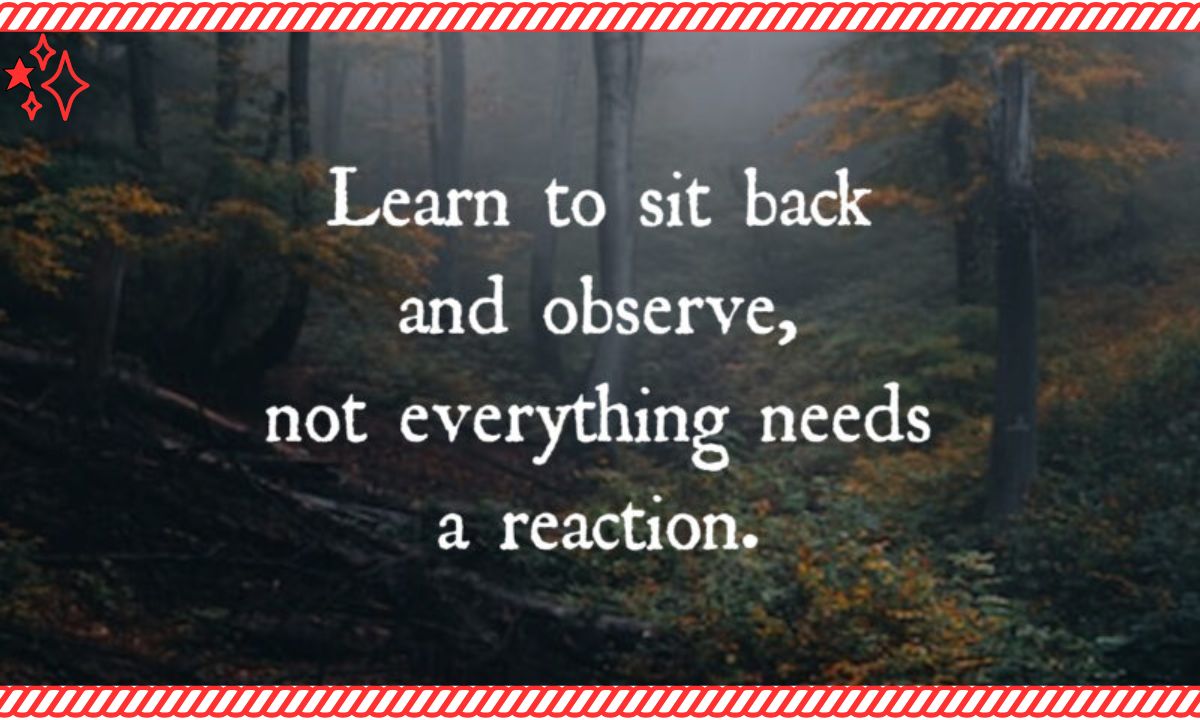In our fast-paced world, it’s easy to feel pressured to react immediately. Every text, email, or social media post often demands a response. This urgency can lead to stress and overwhelm. It’s crucial to learn to sit back and observe. By doing so, we can make better decisions. We must remember that not everything needs our immediate reaction.
The Importance of Mindful Observation
Mindful observation is a powerful practice. It encourages us to take a step back. Instead of rushing to respond, we can pause and reflect. This pause allows us to absorb the situation fully. Mindfulness helps us gain clarity.
Rushing into action can lead to impulsive decisions. These decisions might result in unnecessary conflicts. When we take the time to observe, we can respond more thoughtfully. This practice leads to better understanding and improved outcomes.
Benefits of Mindful Observation
- Improved Clarity: Observing helps us see the bigger picture.
- Reduced Stress: Taking a pause can lower anxiety levels.
- Better Relationships: Mindful responses can enhance communication.
- Informed Decisions: We make choices based on reflection.
By incorporating mindful observation into our lives, we can enjoy these benefits. It’s a small shift that can lead to significant changes.
Slowing Down in a Fast-Paced World

Our modern lives are incredibly fast. Technology and social media bombard us with information. This creates a sense of urgency to react quickly. We feel compelled to respond to everything immediately.
However, slowing down is vital for our well-being. Taking a moment to breathe can make a significant difference. By observing first, we can see the bigger picture. This practice allows us to engage intentionally.
The Impact of a Fast-Paced Life
- Increased Anxiety: Constant pressure to respond can heighten stress.
- Decreased Focus: Multi-tasking can lead to a lack of concentration.
- Poor Decision-Making: Quick reactions often lead to regrettable choices.
To combat these effects, we must learn to slow down. By doing so, we create space for better decision-making.
Emotional Regulation Through Observation
Emotions can drive our reactions. Feelings like anger or frustration can cloud our judgment. It becomes challenging to observe when we are overwhelmed. Yet, sitting back and acknowledging our emotions is crucial.
Observing our feelings helps in emotional regulation. Instead of reacting impulsively, we can take a moment. This moment allows us to process our emotions healthily. We can reflect on the situation without being controlled by our feelings.
Techniques for Emotional Regulation
- Deep Breathing: Helps calm intense emotions.
- Journaling: Writing can clarify feelings.
- Mindfulness Practices: Meditation fosters awareness of emotions.
By using these techniques, we can regulate our emotions more effectively. This leads to healthier responses.
Read This Blog: Meet The Press S76E49: An In-depth Exploration
Avoiding Overreaction in Personal Relationships

Personal relationships often trigger strong emotions. Disagreements can lead to quick, heated reactions. Whether with friends or family, it’s easy to respond impulsively. Observing before reacting can significantly improve communication.
Choosing When to Engage
Not every comment requires a response. It’s essential to recognize this truth. When we observe, we can understand the situation better. Is the other person upset, or are they reacting to something else?
Choosing when to engage creates space between stimulus and response. This space allows for emotional control. It enables us to respond thoughtfully rather than defensively.
How to Choose When to Engage?
- Assess the Situation: Consider the context before reacting.
- Reflect on Emotions: Understand your feelings and motivations.
- Pause Before Responding: Give yourself time to think.
These strategies help us decide when to respond and when to hold back.
Dealing with Conflict
Conflict is a part of life. However, how we handle conflict can change the outcome. Taking a moment to observe can prevent escalation. Often, we react to emotions rather than the actual issue. This can lead to arguments that focus on winning rather than resolution.
When we observe, we assess the situation from different angles. We can better understand others’ motivations. This understanding helps us find common ground and resolve conflicts more peacefully.
Steps to Resolve Conflict
- Listen Actively: Pay attention to the other person’s perspective.
- Stay Calm: Keep your emotions in check.
- Find Common Interests: Look for areas of agreement.
By following these steps, we can navigate conflicts more effectively.
Decision-Making: The Power of Pausing
Every day, we face decisions, big and small. The urge to act quickly can lead to regrettable choices. Sitting back and observing before deciding is crucial. This pause allows us to align our choices with our values.
A calm response often leads to better outcomes. By taking time to gather information, we can consider different perspectives. This leads to informed decision-making.
Effective Decision-Making Strategies
- List Pros and Cons: Weigh the benefits and drawbacks.
- Seek Advice: Consult with trusted friends or mentors.
- Reflect on Values: Ensure decisions align with your core beliefs.
These strategies help us make more thoughtful choices.
Benefits of a Calm and Measured Response

A calm response is often more powerful than a hasty one. When we observe first, we gather more information. We can weigh potential outcomes carefully. This process leads to better results.
Impulsive decisions may solve immediate problems but can create new issues later. By observing, we increase the likelihood of making effective choices. These choices benefit us in the long term.
Long-Term Benefits of Measured Responses
- Stronger Relationships: Thoughtful communication fosters trust.
- Better Mental Health: Reduced stress contributes to overall well-being.
- Increased Confidence: Thoughtful choices lead to better outcomes.
By embracing calmness, we can enjoy these long-term benefits.
Real-Life Applications
There are many situations where observation leads to better outcomes. For instance, reacting to criticism without reflection can create tension. However, by observing the feedback, we may find it constructive.
In social settings, jumping into conversations can lead to misunderstandings. By taking time to listen and observe, we can contribute more meaningfully. This approach helps avoid unnecessary conflict.
Examples of Mindful Observation in Real Life
- Workplace Feedback: Taking time to reflect on criticism can lead to growth.
- Family Discussions: Observing dynamics can enhance communication.
- Friendship Conflicts: Understanding feelings before reacting can resolve issues.
These examples show the power of mindful observation in everyday life.
Also Read This Blog: Drew Brees Makes His NBC Debut, Internet Amazed by His New Hair
Cultivating a Practice of Observing
Learning to sit back and observe is a skill that takes time. It requires practice and patience. However, several techniques can help cultivate this ability.

Developing Self-Awareness
Self-awareness is essential for mindful observation. By understanding our thoughts and emotions, we can control our reactions. Practices like meditation and journaling enhance self-awareness. These activities help us reflect on our experiences.
- Mindfulness Meditation: Focus on the present moment.
- Daily Journaling: Write about your thoughts and feelings.
- Self-Reflection: Take time to think about your reactions.
These practices foster greater self-awareness and help us observe more effectively.
Building Patience
Patience is crucial for observing without reacting. In a fast-paced world, patience can feel rare. However, practicing patience allows us to become comfortable with waiting. This comfort helps us to observe rather than react.
Ways to Build Patience
- Mindful Breathing: Focus on your breath to calm your mind.
- Set Small Goals: Practice patience in everyday situations.
- Limit Distractions: Create a calm environment for reflection.
By building patience, we enhance our ability to observe mindfully.
Frequently Asked Questions
What does it mean to observe mindfully?
Mindful observation means taking a step back to assess situations without rushing to react.
How can I practice being more patient?
You can practice patience through mindfulness techniques, such as meditation or deep breathing exercises.
Why is emotional regulation important?
Emotional regulation helps prevent impulsive reactions, allowing for more thoughtful responses in challenging situations.
How can I improve my self-awareness?
Self-awareness can be improved through journaling, meditation, and regular self-reflection.
What are the benefits of slowing down?
Slowing down allows for better processing of information, leading to more intentional and meaningful interactions.
Conclusion
Learning to sit back and observe is a valuable skill. In a world that encourages constant action, this practice allows for deeper understanding. It helps us respond thoughtfully and make better decisions. By embracing the idea that “not everything needs your reaction,” we can reduce stress and improve relationships.
Sitting back does not mean inaction. It means choosing to act from a place of wisdom. Ultimately, this approach leads to more meaningful experiences in every area of life. Embracing this philosophy can help us lead more intentional and fulfilling lives.

Hayyat is an experienced content writer and digital marketer, skilled in creating SEO-friendly content that resonates with audiences. She helps brands enhance their online presence through targeted campaigns, with expertise in blog writing, social media management, email marketing, and SEO optimization.





